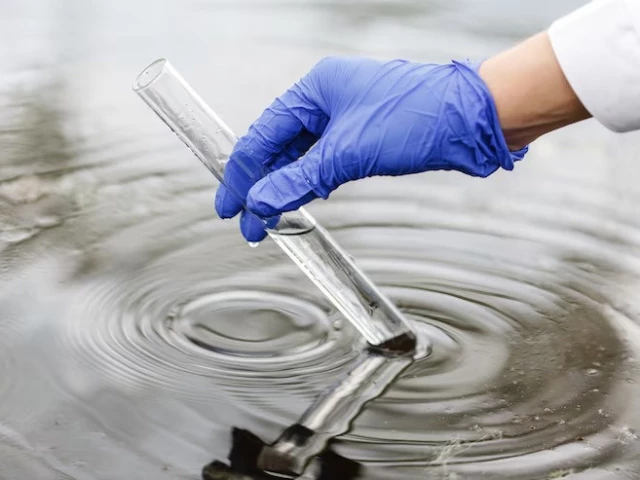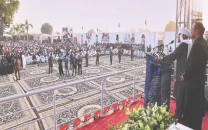Township residents face water contamination
Sewage seeps into pipelines during rainfall, clogging

Lack of access to clean water, a basic necessity, has become a persistent source of distress for residents of a sector in the Township, where the supply has been contaminated with sewage for years.
Speaking to The Express Tribune, several residents of Block 4 voiced frustration over the negligence of the Water and Sanitation Agency (WASA), which they say has failed to prevent sewer water from infiltrating their pipelines.
The problem worsens during rainfalls or when sewer lines become clogged, leading to black, foul-smelling water flowing from household taps.
Maria Khan, a resident of the area near Muhammadi Park, said turning on the tap should provide clean and safe water, yet for the residents it delivers a murky, putrid liquid.
"The stench lingers in our homes, raising fears of waterborne diseases and posing serious health risks," she said.
She complained that despite numerous complaints to WASA, the officials told residents to "wait until the sewer water level drops," insisting that the issue would be resolved itself, without implementing any concrete solutions to address the root cause of contamination.
Adil Mahmood, another resident of the neighborhood, said the problem resurfaces every rainy season when stagnant water accumulates in the area, leading to further contamination of the water supply.
"The issue lasts for days, sometimes weeks," he said. "We have been lodging complaints with WASA for years, but nothing has changed.
During the February 8 general election, candidates promised to resolve the water contamination issue, yet none have followed through after winning."
He added that the crisis has once again intensified ahead of Eidul Fitr, causing distress for residents.
Muhammad Sharif, who has lived in the locality for nearly three decades, recalled that tap water was once used for drinking, cooking and washing. "Now, due to severe contamination, all residents must fetch drinking and cooking water from filtration plants," he said.
"The government is spending millions on sanitation projects like Suthra Punjab, yet it is failing to ensure clean drinking water for Lahore's residents," he said.
The impact on residents is severe. Many must travel long distances to water filtration plants, carrying heavy containers to access safe drinking water.
The burden is especially hard on the elderly, the sick and those with limited mobility. Additionally, purchasing bottled water and arranging transportation to filtration plants has become a financial strain on families already facing economic hardship.
The residents demanded immediate and long-term repair of the water supply infrastructure.
An official from the local WASA office acknowledged that a lasting solution requires identifying and repairing leaks or faults in the water supply infrastructure.
He admitted that resolving the issue requires financial resources besides political and institutional will to address the problem at its core.

























COMMENTS
Comments are moderated and generally will be posted if they are on-topic and not abusive.
For more information, please see our Comments FAQ